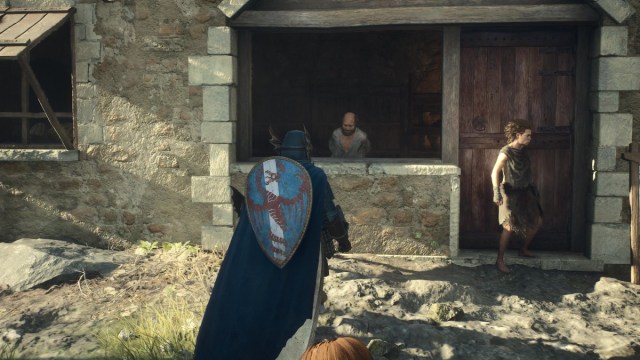To the surprise of most gamers, Dragon’s Dogma 2 has been released with numerous microtransactions that allow you to obtain in-game items. These aren’t just cosmetics you might see in most other games. Instead, they are small purchases for gameplay items such as Portcrystals to Fast Travel or Rift Crystals that allow you to hire more powerful Pawns. All of it is bad.
Sure, you can get most of the items in the game for free. If you explore enough, you likely will never see a need for MTX unless you want expensive Pawns. However, this is a bad look for early players and sets a precedent that wouldn’t go over well if it were a company like Electronic Arts. Saying “Just don’t buy it” doesn’t work here.
MTX Items in Single-Player Games Cause Skepticism
Any time a single-player game introduces microtransactions based on gameplay, some gamers will reasonably believe something is wrong with the core design. If they are selling XP boosts or fast travel items, are they intentionally making the game harder without paying extra? Is your time being wasted? Well, that idea isn’t new, and a similar backlash was faced with games like Middle-Earth: Shadow of War. Fans of the game always had a poor opinion of the MTX inside the game, even if they weren’t needed, because it diminishes the value of the base game experience. Eventually, those MTX were removed from Shadow of War.

Games such as Assassin’s Creed are no stranger to this practice either, and like clockwork, gamers tend to get angry. Only Ubisoft doesn’t tend to change its practices with one of its largest franchises. Regardless, these additions create ill will in the community, and Dragon’s Dogma 2 will likely be no different. It’s almost impossible to ignore all the small microtransactions for gameplay when the game is already $70.
When titles such as Elden Ring and Baldur’s Gate 3 continue to show why MTX isn’t necessary for a good single-player game, it makes seeing them in Dragon’s Dogma 2 even more frustrating. The game is clearly a gem and a better version of the original game in nearly every way. Releasing without microtransactions was an easy layup for Capcom that they still missed.
This Hurts New Dragon’s Dogma 2 Players the Most
Any Dragon’s Dogma: Dark Arisen veterans know that the sequel can be played without spending any additional money. Rift Crystals seem the most ridiculous out of them all, especially because changing pawn appearances can cost up to 2,000 RC. But the rest of the game is absolutely playable as long as you know what you’re doing. That last part is paramount.
By its nature, Dragon’s Dogma 2 is a confusing game. It plays like a classic RPG where exploring and paying attention to every detail is necessary for success. That idea is what makes DD2 so enthralling and also what makes it unique. Most gamers are used to systems that allow them to simply fast-travel or buy the items they need from a merchant. Whether that’s good or bad is another debate, but it’s what many players know, which makes jumping into Dragon’s Dogma 2 feel incredibly daunting.
When those players look at the store and see they can pay for a Portcrystal or a Wakestone, it starts to sow the seeds of doubt. Is the game so confusing because they have to pay? Will they be able to reach the end without buying some Rift Crystals and hiring better pawns? If the unnecessary microtransactions didn’t exist, there would be no doubt.
We shouldn’t be defending these microtransactions in any capacity. It doesn’t matter at all that you can gloss over them. It continues a standard that publishers have continued to push in other genres to the point where macrotransactions are commonplace. Keep the same energy that is usually held against publishers like EA. Players don’t want microtransactions in their single-player games.





Published: Mar 22, 2024 02:48 pm